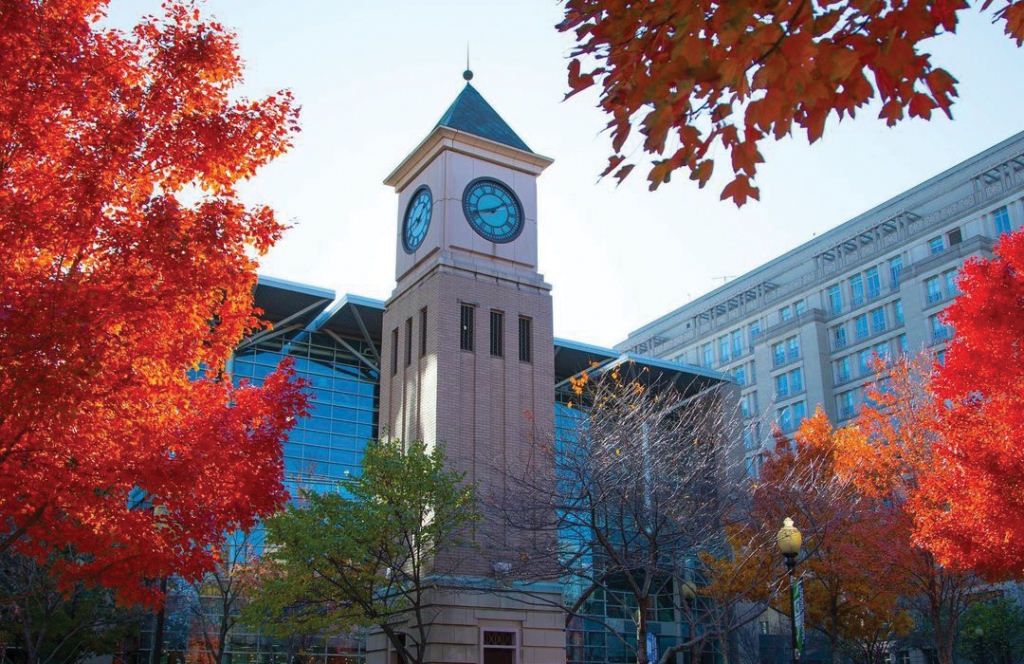Two national organizations submitted letters to the Georgetown University Law Center (GULC) administration in support of Muslim students’ advocacy against the alleged Islamophobic course content of tenured professor Susan Deller Ross.
The Council on American-Islamic Relations (CAIR) and the American Muslim Bar Association (AMBA) wrote separate letters — released March 14 by CAIR and released March 18 by the AMBA — to support demands from the Georgetown Muslim Law Student Association (MLSA) in their Feb. 28 letter and memo, which outlined alleged instances of Islamophobia in Ross’s class.
Ross’s exams have included questions asking for students to advocate for upholding a hijab ban and for supporting the positions of a right-wing extremist organization that has committed mass lynchings of Muslims in Kashmir, according to the MLSA letter.
CAIR urged GULC administrators to conduct an investigation into Ross’ conduct, publicly denounce Islamophobia and offer culturally competency training. AMBA asked that GULC and Ross publicly address students’ concerns.
Ross did not respond to The Hoya’s request for comment.
During two meetings between MLSA members and the GULC administration March 8 and 23, the university did not release a statement condemning Islamophobia when the students asked, according to Hamsa Fayed, secretary of Georgetown’s MLSA.
“We crafted a two-sentence statement for them to post or to send an email to the students at Georgetown Law, as they did with the Ilia Shapiro and Franz Werro incidents, but they seemed to be resistant and ultimately refused to do that,” Fayed said in an interview with The Hoya.
When asked if GULC released a statement condemning Islamophobia following the students’ requests, GULC Dean William Treanor referred The Hoya to a June 9 email condemning anti-Muslim violence after four members of a Muslim family were murdered in Canada.
Though the university cannot comment on personnel matters, Treanor said administrators will address harassment complaints through conducting investigations for individual faculty members.
“If a determination is made that a faculty member has violated policy, the University will determine sanctions and remedies under the Faculty Responsibilities Code as appropriate,” Treanor wrote in an email to The Hoya.

CAIR asked that GULC investigate Ross’ conduct, as well as her class and curriculum material, according to Zainab Chaudry, director of the Maryland CAIR office.
“Unfortunately, there has not been the kind of response that we would expect — especially from a university of Georgetown’s caliber — to move the needle and make sure that these students’ concerns are being addressed and appropriate action is being taken,” Chaudry said in an interview with The Hoya.
While students can be pushed to challenge their perspectives and professors have freedom to construct their class curriculum, this incident brings up additional issues, according to Adeel Bashir, AMBA president.
“There’s a difference between teaching students and advocating for positions that you may not necessarily agree with,” Bashir said in an interview with The Hoya. “Those are completely fair points. Within the academic world academic freedom, there’s freedom of speech. We’re not challenging any of that.”
During a March 23 clinic fair at GULC where clinic directors presented their programs, dozens of students held a stand-in where they held up signs condemning the content from Ross’s class.
Ross did not show up and the clinic fair did not include her clinic’s presentation, according to Fayed.
“We had these signs, or posters, and we lifted them up at the conclusion of the clinic and held them up really high,” Fayed said. “We were silent. But one or two of us said a statement about why we were doing this, that we asked people to not sign up for the clinic and to be aware of the clinic in general.”
It’s frustrating for alleged Islamophobic rhetoric to be included into the GULC curriculum for decades, according to Jinan Chehade (LAW ’23), another MLSA member..
“For someone to have multiple exams to have the best answer be that hijab is backward and prevents women from progressing and is a human rights violation, and advocate for France’s hijab ban — I think that as a Jesuit university, Georgetown should be on the forefront of this and not wait for students to bring it up,” Chehade said in an interview with The Hoya.
Magnifying advocacy when students raise concerns is essential in the fight for equitable learning environments, according to Chaudry.
“It’s important to amplify the voices of these students who are coming forward courageously and reporting these incidents,” Chaudry said. “It can be very isolating and challenging, especially in an academic environment to take a bold stand like this, to stand up for justice and equity.”




















